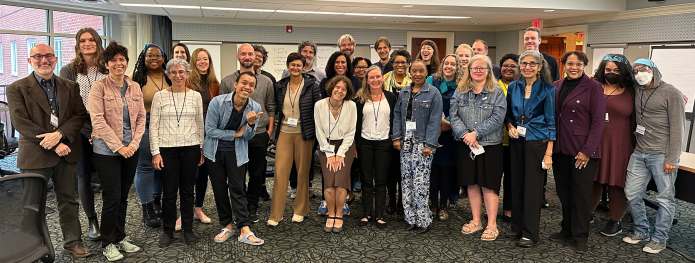The Triangle Scholarly Communication Institute began as an idea in 2013, and with support from our advisory board and partner organizations, and three successive grants from the Mellon Foundation, hosted an annual program from 2014 through 2024, with a 2 year hiatus at the height of the COVID pandemic.
As our funding was concluding at the end of 2024, we held a capstone program in October, reflecting on lessons learned, the values and models TriangleSCI promoted, the many projects launched here, and challenges and opportunities on the road ahead.
While the program has now concluded, you can find information about past programs and some of the projects launched here in the links below and throughout this site.
Thanks again to the Mellon Foundation for providing funding for this program, to Duke University Libraries for hosting it, to all of our partners and advisory board members for their contributions, and to all of the teams and participants for making it a wonderful experience each year.
Past year programs
- SCI 2014 – Scholarship and the Crowd – highlights and photos
- SCI 2015 – Validating and valuing digital scholarship – highlights and photos
- SCI 2016 – Incentives, Economics, and Values: Changing the Political Economy of Scholarly Publishing – highlights and photos
- SCI 2017 – Scholarly Storytelling: Compelling Research for an Engaged Public – highlights and photos
- SCI 2018 – Overcoming Risk – highlights and photos
- SCI 2019 – Equity in Scholarly Communications – highlights and photos
- SCI 2020 – Community, Collaboration, and the Commons [canceled due to the COVID pandemic]
- SCI 2021 – [skipped due to the COVID pandemic]
- SCI 2022 – Reckoning, Care, and Repair – highlights and photos
- SCI 2023 – Trust – highlights and photos
- SCI 2024 – Capstone symposium
[ Photo by William Bout used under Unsplash Free License. ]


